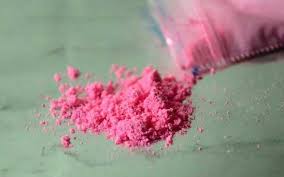Experts Share 8 Easy Tips to Protect Your Smile, Boost Confidence, and Age Gracefully with Healthy Teeth
By age 75, one in five adults in the U.S. has lost all their teeth, according to the CDC. But dental experts insist: tooth loss is not an inevitable part of aging. With the right habits, preventive care, and awareness, older adults can maintain a healthy, functional, and confident smile well into their later years.
Here are eight essential tips, backed by dental professionals and researchers, including Clinica Romero, that can help preserve your oral health and protect your overall well-being.
- Prioritize Gum Health — It’s the Foundation of Everything
Roughly two in three adults over 65 have some form of gum disease, according to recent public health reports. Bleeding gums, swelling, or sensitivity may seem minor, but experts warn these are early signs of serious problems.
“Gum disease doesn’t just threaten your teeth — it can impact your nutrition, increase dementia risk, and even affect your heart,” says Dr. Jeanette MacLean, a board-certified pediatric dentist who specializes in prevention.
A meta-analysis cited by AARP found that older adults who had lost all their teeth had a 1.4x greater risk of developing dementia. The inflammation caused by untreated gum disease is suspected to be a key contributor.
What to do: Brush gently with an electric toothbrush for two minutes twice a day, floss or use a water flosser daily, and schedule cleanings at least every six months (or more frequently, depending on your needs).
- Combat Dry Mouth — The Silent Enemy of Aging Mouths
Dry mouth (xerostomia) affects nearly 60% of older adults, often due to medications like antihistamines, antidepressants, or blood pressure pills. Without saliva, your mouth loses its natural defense against cavities and infections.
“Saliva helps neutralize acids and remineralize teeth. When it’s not there, decay can spiral quickly,” explains Dr. Matthew Messina, dental expert and spokesperson for the American Dental Association.
What to do: Sip water regularly, rinse after meals, ask your dentist about high-fluoride toothpaste, and consider products like Biotene or ACT dry mouth rinse.
- Tailor Your Dental Checkups to Your Needs
While the standard advice is to see the dentist every six months, older adults may need personalized schedules — especially those with chronic illnesses or advanced dental work.
“There’s nothing magical about the six-month rule,” says Dr. Scott Froum, a periodontist in New York. “Some need to come in every three months, others just once a year. It depends on risk.”
Checkups can also detect bite issues, which are often overlooked and can contribute to neck pain, headaches, and jaw dysfunction.
What to do: Ask your dentist if you need more frequent visits based on your medical history, and request an evaluation of your bite and jaw alignment.
- Master the Basics: Brush and Floss Effectively
It’s not just about brushing twice a day—it’s about brushing correctly. Using soft circular motions with a soft-bristled toothbrush helps remove plaque while protecting gum tissue. Add flossing or a water flosser to clean between teeth, where decay often starts.
Pro tip: Consider electric toothbrushes with timers to ensure proper duration and pressure.
- Eat for Your Teeth: Strengthen from the Inside Out
Nutrients like calcium, vitamin D, and phosphorus are crucial for keeping your teeth and bones strong. A weak jawbone can lead to loose or lost teeth.
Best foods for dental health: Leafy greens, dairy, fortified plant milks, almonds, and fish like salmon or sardines.
For some older adults, especially postmenopausal women, supplements may be needed to prevent osteoporosis-related tooth loss. Talk to your doctor about your bone density.
- Kick Harmful Habits — They Age Your Mouth Faster
Smoking triples your risk of complete tooth loss, according to CDC data. It also increases your chances of gum disease and oral cancer. Excessive alcohol and sugary cough drops or hard candies can also wreak havoc on tooth enamel.
What to do: Quit tobacco entirely, limit alcohol, and switch to xylitol-based sugar-free gum or candies, which can actually help prevent cavities.
- Don’t Ignore Tooth Appearance — It Reflects Health and Confidence
A common misconception is that discolored, worn teeth are just part of getting older. But modern dentistry offers simple, affordable options to restore appearance and function.
“It’s not just about revitalizing the teeth — it’s about revitalizing the person,” says Dr. Christian Coachman, founder of Digital Smile Design.
Options to consider: Professional cleanings, whitening, veneers, bonding, or implant-supported dentures — depending on your needs and goals.
- Find Affordable Care — Don’t Let Cost Keep You Away
Only 3 in 10 adults over 65 have dental insurance, according to the American Dental Association. And Medicare doesn’t cover routine dental work.
Resources to explore:
- Dental savings plans
- Sliding-scale community clinics, such as Clinica Romero
- Dental school clinics, which offer supervised care at reduced cost
- Nonprofits like Dental Lifeline Network, which assist low-income seniors
Skipping preventive care often leads to more expensive and painful procedures later. Don’t wait until a toothache forces your hand.
Prevention Is Power
Tooth loss is not an inevitable part of aging. With mindful care, regular checkups, and healthy habits, your smile can stay strong well past 55.








